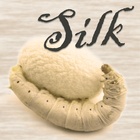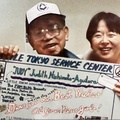Matsugoro Ohto wiped the sweat off of his forehead as he and his fellow carpenter, Kuninosuke “Kuni” Masumizu, took a break from their woodworking project inside the Veerkamp family’s barn on Gold Hill. Led by the family’s German patriarch, Francis, the Veerkamps were plentiful. By last count, Matsugoro thought that there might be at least six children, all boys.
His fellow Japanese countryman, Kuni, was more than twenty years younger than him. Kuni, in fact, was about the same age as Francis’s oldest son, Henry. Matsugoro was not intimidated by Kuni’s youthful strength. He had learned years ago that he had to depend on his brain, his mind. He wrote down all his observations in a small notebook that he kept in his pant pocket. You never know when a piece of information would be handy in the future.
“Ohto, Kuni, come to the house.” Henry stood at the center of the open barn door. He had a tall, sturdy frame, his wavy brown hair often in disarray in the heat. Like his father, he had a healthy crop of facial hair. “We have lunch for you.”
Most likely sandwiches or maybe some kind of sausage, Matsugoro thought. He tried not to be ungrateful, but truth be told, what would he give for rice, natto, and steaming miso soup. And maybe a side of tsukemono, specifically vegetables pickled in nukadoko, fermented rice bran.
Matsugoro and Kuni brushed off the wood shavings on their clothes as they walked towards the farmhouse. They stomped their workboots on the wood steps, hoping to loosen the dirt on their heels.
“Don’t worry about that,” Henry said. The hakujin never seemed concerned about bringing in the outside into the inside.
When they entered the living room, sandwiches were already placed on plates on the dining table. Boys ran through the room, chasing each other. It was mass chaos, but a happy one.
After they finished, Matsugoro collected their dirty plates and entered the kitchen.
“Ohto, you didn’t have to do that.” Francis’s wife, Louisa, was wearing an apron, her belly still a little enlarged from her recent pregnancy. Something was boiling in a large metal pot on the stove. In the sink was a big metal bowl filled with steaming tomatoes. The red color was so brilliant; it reminded Matsugoro of the red circle on the hinomaru flag, which had just been adopted in Japan in 1870.
The nursemaid who worked with the Schnells, Okei, was also in the kitchen, peeling the skins for the tomatoes and then placing them into glass jars. There were about six empty jars while another six were filled with tomatoes and juice, a rubber-topped lid screwed on.
Matsugoro was transfixed with the canning process. In Japan, they did not have access to tomatoes in the north. In fact, it was so cold and dark in places like Akita that they smoked their vegetables before pickling them.
“Oi, I’m going back to the barn,” Kuni called out.
Matsugoro nodded. “I’ll be right there.”
“Ohto-san, I didn’t know that you were so interested in cooking,” Okei commented in Japanese.
“I’m curious about things I do not know.”
It was as if Louisa understood what they were saying. “Don’t just stand there watching,” she said, handing him an apron. “If you want to learn how to can tomatoes, you have to do it.”
Matsugoro examined one of the empty jars. It was long with a bluish opaque color. The top of the bottle was curious. It had screw threads so that its lid could be fastened tightly. He thoroughly washed his hands and began to assist Okei in removing the peel from a boiled tomato. His fingertips burned from the tomato’s heat. Okei did it so quickly; Matsugoro wondered if she had lost all feeling in her hands.
“You’ve never pickled anything before?” Louisa asked, obviously amused by the trouble that Matsugoro was having.
“Pickles?” Matsugoro had heard that term before.
“Tsukemono,” Okei translated.
“What?” Louisa asked.
“We call tsukemono,” Matsugoro explained. “In Japan, where we live we make nukadoko.”
Louisa furrowed her brow and both Matsugoro and Okei began to laugh. Matsugoro felt some comfort in the Veerkamp home. Both Francis and Louisa were from another country. During a wagon trip to town, Matsugoro had heard Francis’s story. How he had lived near a river in Germany and then come to America as a young boy. At age 30 he traveled over the plains of America from a place called Missouri to the “promised land,” California. That trek took him five months. Matsugoro could relate as the boat trip from Japan had taken him months as well.
Since Louisa wanted to know what nukadoko was, Okei tried to explain. You needed rice bran, soy beans, plenty of salt, and other spices. Then you soaked the vegetables in this pickling bed.
“Smells very strong,” Matsugoro added.
Louisa didn’t seem like she was that interested in trying tsukemono. A baby started to wail in another room. Before excusing herself to tend to her youngest son, she grabbed one of the canned tomato jars and handed it to Matsugoro. “Here. Store it in a cool place.”
Matsugoro accepted the gift, which was still warm, and bowed. “Thank you. My wife will be so happy.”
“Maybe you don’t want to tell her that you were cooking with two women this afternoon.”
Matsugoro shook his head. This afternoon was nothing to feel embarrassed about. Who knows how he could parlay this information in the future?
Other Sources:
Ross Kenneth Urken, “In Tohoku, Samurai Cuisine Is Racking Up Michelin Stars,” (The Japan Times, April 13, 2018)
Osamu Sawaji, “The Fermented Foods of Tohoku,” (Japanese Government Public Relations Online, May 2020)
Molly Spurlock, “Iburi Gakko – Smoked Pickle of Akita Prefecture,” (Cupido, November 20, 2016)
Author’s note: Originally, I used the name Ofuji Matsugoro for the historical character featured in this chapter. However, a descendant of his wrote an article about him for Discover Nikkei which provided the correct translation of the kanji as Matsugoro “Ohto,” so his name has been corrected. (9/2/20)
© 2020 Naomi Hirahara





